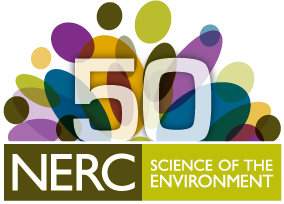The goal of Individual Fellowships is to enhance the creative and innovative potential of experienced researchers wishing to widen their experience in terms of skill acquisition at multi- or interdisciplinary level through advanced training, international and intersectoral mobility.
Individual Fellowships provide opportunities to acquire and transfer new knowledge and to work on research in a European context (EU Member States and Associated Countries) or outside Europe. The scheme particularly supports the return and reintegration of researchers from outside Europe who have previously worked here. It also develops or helps to restart the careers of individual researchers that show great potential, considering their experience.
Support is for individual, trans-national fellowships awarded to the best or most promising researchers for employment in EU Member States or Associated Countries, based on an application made jointly by the researcher and host organisation in the academic or non-academic sectors.
Fellowships are either European Fellowships or Global Fellowships. European Fellowships are held in EU Member States or Associated Countries and are open to researchers currently within and outside Europe.
Support to individuals to resume research in Europe after a career break, e.g. after parental leave, is ensured via a separate multi-disciplinary career restart panel of the European Fellowships. To qualify for the career restart panel, researchers must not have been active in research for at least 12 months immediately prior to the deadline for submission.
Researchers receiving an Individual Fellowship may opt to include a secondment phase in Europe, notably in the non-academic sector, within the overall duration of their fellowship. For a fellowship of 18 months or less, the secondment phase may last up to three months. For a fellowship of more than 18 months, the secondment phase may last up to six months. The secondment phase can be a single period or be divided into shorter mobility periods. The secondment should significantly add to the impact of the fellowship.
A Career Development Plan should be established jointly by the supervisor(s) and the researcher. In addition to research objectives, this plan comprises the researcher’s training and career needs, including training on transferable skills, planning for publications and participation in conferences.
Expected impact:
• Individual Fellowships are expected to add significantly to the development of the best and most promising researchers active in Europe, in order to enhance and maximise their contribution to the knowledge-based economy and society.
• Individual Fellowships are expected to strengthen the contact network of both the researcher and the host organisation.
• Individual Fellowships are expected to contribute the full potential of researchers and to significant development in their careers in both the academic and non-academic sectors.
• Some researchers will be resuming a research career in Europe after a break, or reintegrating within Europe after living abroad.
Deadline: 10-09-2015 17:00:00 (Brussels local time)
Further details: http://ec.europa.eu/research/participants/portal/desktop/en/opportunities/h2020/calls/h2020-msca-if-2015.html#tab2







![logo_en[1]](https://blogs.staffs.ac.uk/research/files/2013/11/logo_en1.gif)




![logo_en[1]](https://blogs.staffs.ac.uk/research/files/2014/10/logo_en1.gif)
